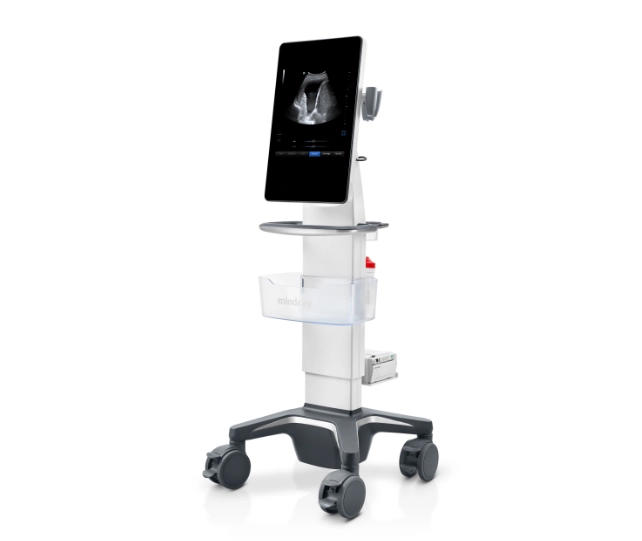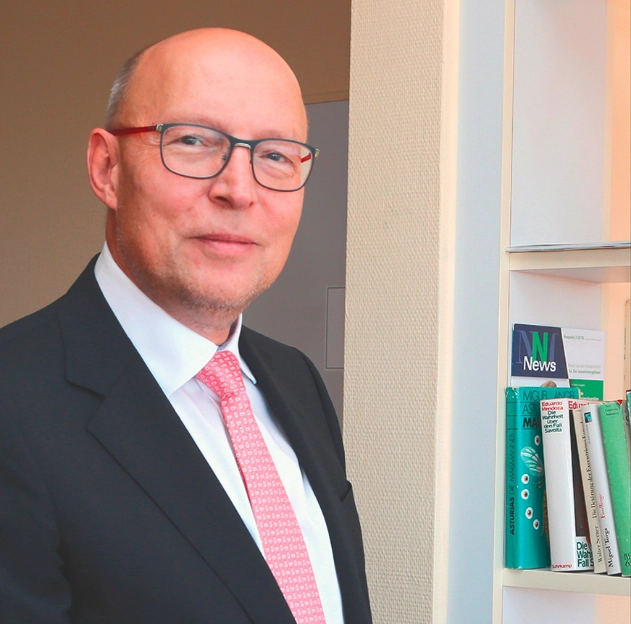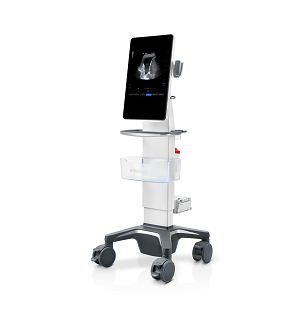Mindray Ultrasound Technology supports MOL Hospital in Germany on Study of Enhanced Treatment for Heart Failure
2024-07-05

Mindray is backing a collaborative research endeavour led by Märkisch-Oderland Hospital (MOL) and esteemed medical institutions in Germany, utilising ultrasound technology. The innovative study aims to enhance treatment for heart failure by calculating the VExUS score to assess blood reflux in veins, aiming to improve patient outcomes and medication management.

The heart is undoubtedly the most constantly strained organ in the human body. While the brain may take breaks, the heart must beat relentlessly without pause, exceeding three billion times over a lifetime. Consequently, according to various estimates, two to three million individuals in Germany suffer from heart failure. This is the focus of a study conducted by MOL Hospital, in collaboration with the Bernau Heart Center, and the cardiology departments of the university clinics of the Brandenburg Medical School in Neuruppin and Brandenburg an der Havel, as well as the Brandenburg Institute for Clinical Ultrasound.
Patients with severe heart failure experience symptoms such as breathlessness, weakness, and fluid retention in the legs and body cavities. Blood pools in the liver and kidneys before the right side of the heart. A straightforward bedside ultrasound examination aims to assess the degree of blood reflux in the circulatory system due to heart failure. The innovative approach utilizes ultrasound to conduct flow curve measurements in the body's veins.
Mindray is supporting with 4 diagnostic ultrasound systems, TE9, for the study that enables the calculation of the VExUS (Venous excess Ultrasound) score. This score indicates the level of blood reflux in the veins. Simultaneously, the investigators are gathering clinical and laboratory data relevant to patients with heart failure, alongside assessing the ratio of body water to body tissue through bio-impedance measurement devices.

 Pictures provided by Prof. Dr. Christian Jenssen, Krankenhaus Märkisch-Oderland GmbH
Pictures provided by Prof. Dr. Christian Jenssen, Krankenhaus Märkisch-Oderland GmbH
Prof. Dr. Christian Jenssen
Chief physician of the Department of Internal Medicine
Märkisch-Oderland Hospital
The study is intended to provide information on whether the VExUS score and the other measurements are suitable for estimating the treatment prospects of patients with severe heart failure and for controlling drug treatment with diuretics.
In addition to treating the causes of heart failure, the treatment involves alleviating strain on the heart and prescribing diuretics. These medications help eliminate surplus fluids through the kidneys. Nevertheless, there is a potential risk of overwhelming the kidneys, potentially leading to failure in severe cases.
Prof. Dr. Christian Jenssen
Chief physician of the Department of Internal Medicine
Märkisch-Oderland Hospital
This study helps us to develop gentle treatment methods for patients with heart failure in order to protect them from serious complications such as acute kidney failure. 25 percent of Brandenburg residents are over 65 years old. This means that we have one of the highest hospital admission rates for heart failure in our region.

Alongside the four clinics, Prof. Dr. Jenssen (past president of the European Ultrasound Federation) and other renowned experts such as Prof. Dieter Nürnberg (founding dean of the Brandenburg Medical School) and Prof. Raoul Breitkreutz from the Scientific Network Ultrasound for Point-of-Care Ultrasound in Emergency and Intensive Care Medicine are taking part. This marks the first multi-center scientific study conducted by the Brandenburg Medical School (MHB), with the MOL Hospital serving as an affiliated teaching institution of the MHB.
Front cover Photo by: Enrico Schefter
A picture of v.l. Stephanie Schrumpf, Endoskopie Pflegekraft, André Paschkewitz, Oberarzt der Klinik für Innere Medizin,
Prof. Dr. Christian Jenssen, Chefarzt der Klinik für Innere Medizin

